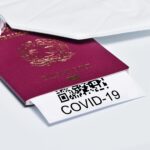- Skilled Worker and Express Entry Skilled Worker Categories: A total of 14 invitations were issued to candidates in these streams. Both groups targeted individuals with profiles matching NOC 62020 and NOC 63200, and all required the minimum score of 60. This highlights the demand for experienced supervisors and cooks who can immediately contribute to the workforce.
International Graduate Category: This category saw 5 invitations extended to recent graduates. Similarly, the targeted occupations were Food service supervisors (NOC 62020) and Cooks (NOC 63200), with the same minimum score of 60. This provides a clear pathway for international students who have studied in Canada and wish to build their careers in Newfoundland and Labrador.
Navigating the Critical NLPNP Immigration Pathways
Understanding the different streams within the Newfoundland and Labrador Provincial Nominee Program (NLPNP) is essential for any aspiring immigrant looking to settle in this vibrant Atlantic province. The program is meticulously designed to cater to various types of candidates, from those with existing job offers to international graduates and those already in the federal Express Entry pool. The recent draw pulled from three of its most vital categories. The Skilled Worker Category is a cornerstone of the NLPNP, designed for individuals who have secured a guaranteed full-time job offer from a Newfoundland and Labrador employer. It is also open to those who are already legally working in the province on a valid work permit. This stream is particularly attractive because it provides a direct line to permanent residency for those who have already demonstrated their value to a local employer, making it a stable and predictable option.
The Express Entry Skilled Worker Category operates in tandem with the federal Express Entry system, which manages applications for Canada’s main economic immigration programs. To be eligible, a candidate must first have an active profile in the federal Express Entry pool. If they also meet Newfoundland and Labrador’s specific criteria and have a high-skilled job offer from an NL employer, they can receive a provincial nomination. This is an immense advantage, as a provincial nomination grants an additional 600 Comprehensive Ranking System (CRS) points, effectively guaranteeing an Invitation to Apply (ITA) for permanent residence in a subsequent federal Express Entry draw. Finally, the International Graduate Category is tailored for recent graduates from eligible Canadian post-secondary institutions. Candidates must hold a Post-Graduation Work Permit (PGWP) and have a job or job offer from an NL employer that aligns with their field of study. This stream is a critical tool for retaining talented individuals who have already integrated into Canadian society through their studies.
The Atlantic Immigration Program (AIP): A Collaborative Route to Atlantic Canada
Beyond its own provincial programs, Newfoundland and Labrador is an active participant in the Atlantic Immigration Program (AIP). This unique, employer-driven federal program is a collaborative effort between the Canadian federal government and the four Atlantic provinces: Newfoundland and Labrador, Prince Edward Island, Nova Scotia, and New Brunswick. The primary goal of the AIP is to address persistent labour shortages in the region by helping employers hire qualified foreign nationals and international graduates who want to settle in Atlantic Canada. Unlike the points-based systems such as Express Entry, the AIP focuses directly on employer needs. The process begins with an eligible employer in one of the Atlantic provinces identifying a candidate to fill a job vacancy. The employer must then offer them a job and, in most cases, work with a settlement service provider to develop a personalized settlement plan for the candidate and their family.
This settlement plan is a crucial component of the AIP, as it ensures newcomers have the support they need to successfully integrate into their new communities. Once the job offer is made and the settlement plan is in place, the province provides an endorsement. With this provincial endorsement, the candidate can then apply for permanent residence directly to Immigration, Refugees and Citizenship Canada (IRCC). The program is a powerful testament to a more holistic and supportive approach to immigration, prioritizing long-term retention and community integration over a simple points score. For candidates, the AIP offers a more direct and secure pathway to permanent residency, contingent on securing a valid job offer from a designated employer rather than competing in a large pool of applicants. It’s an exceptional option for those looking to build a life in the unique and welcoming communities of Atlantic Canada.
Frequently Asked Questions
What is the Newfoundland and Labrador Provincial Nominee Program (NLPNP)?The NLPNP is an economic immigration program that allows the province of Newfoundland and Labrador to nominate individuals with specific skills and experience for Canadian permanent residency. The program is designed to meet the province’s labour market and economic development needs by targeting skilled workers, international graduates, and entrepreneurs. How does a provincial nomination from the NLPNP help an Express Entry candidate?
A provincial nomination from an Express Entry-aligned stream, like the NLPNP’s Express Entry Skilled Worker category, grants a candidate an additional 600 points toward their Comprehensive Ranking System (CRS) score. This substantial boost virtually guarantees they will receive an Invitation to Apply (ITA) for permanent residence in a subsequent federal Express Entry draw. What occupations were targeted in the recent Newfoundland and Labrador immigration draw?
The draw on July 10 targeted two specific occupations: Food service supervisors (NOC 62020) and Cooks (NOC 63200). Candidates in these professions were invited under the Skilled Worker, Express Entry Skilled Worker, and International Graduate categories. What is the Atlantic Immigration Program (AIP)?
The Atlantic Immigration Program (AIP) is a federal immigration program that helps employers in Canada’s four Atlantic provinces (Newfoundland and Labrador, Prince Edward Island, Nova Scotia, and New Brunswick) hire foreign skilled workers and international graduates. It is an employer-driven program that requires a job offer and a settlement plan to help newcomers integrate successfully. What was the minimum score required in the latest NLPNP draw?
The minimum score required for candidates to receive an invitation in the July 10 Newfoundland and Labrador PNP draw was 60 points. This score applied to all categories and occupations targeted in this specific draw.
Talk to us to find out more. ->
The content above is not intended to provide legal advice or opinions of any kind and may not be used for professional or commercial purposes.
In a significant development for Canadian immigration, Newfoundland and Labrador has just conducted its latest immigration draw, extending invitations to candidates through its acclaimed Provincial Nominee Program (NLPNP) and the Atlantic Immigration Program (AIP). This Newfoundland and Labrador immigration draw highlights the province’s ongoing commitment to attracting skilled professionals to fill crucial labour market gaps, particularly in the food service sector. For prospective immigrants with experience as cooks and food service supervisors, this presents a remarkable and timely opportunity to secure a provincial nomination and advance their journey toward Canadian permanent residency.
Table of Contents
- Detailed Breakdown of the Latest Newfoundland and Labrador PNP Draw
Navigating the Critical NLPNP Immigration Pathways
The Atlantic Immigration Program (AIP): A Collaborative Route to Atlantic Canada
Frequently Asked Questions
Detailed Breakdown of the Latest Newfoundland and Labrador PNP Draw
On July 10, the province of Newfoundland and Labrador issued a total of 19 Invitations to Apply (ITAs) in a targeted draw. While this number may seem modest compared to larger federal Express Entry draws, its strategic focus makes it profoundly important. These invitations were aimed at candidates in specific streams of the Newfoundland and Labrador Provincial Nominee Program (NLPNP), requiring a minimum score of just 60 points. This targeted approach underscores the province’s precise strategy for addressing specific labour needs, offering a direct and accessible pathway for individuals with the right skills and experience. The draw specifically focused on two high-demand occupations under the National Occupational Classification (NOC) system: NOC 62020 (Food service supervisors) and NOC 63200 (Cooks). This signals a strong demand within the province’s hospitality and food service industries, creating a golden opportunity for professionals in these fields. By setting an attainable minimum score, the province demonstrates its intent to welcome qualified talent without the intensely competitive score thresholds often seen in broader immigration streams.
The invitations were distributed across two main NLPNP categories, ensuring that both experienced workers and recent international graduates had a chance to be selected. This dual-focus approach is a testament to the province’s comprehensive immigration strategy, valuing both seasoned expertise and the fresh skills brought by those who have recently completed their education in Canada.
- Skilled Worker and Express Entry Skilled Worker Categories: A total of 14 invitations were issued to candidates in these streams. Both groups targeted individuals with profiles matching NOC 62020 and NOC 63200, and all required the minimum score of 60. This highlights the demand for experienced supervisors and cooks who can immediately contribute to the workforce.
International Graduate Category: This category saw 5 invitations extended to recent graduates. Similarly, the targeted occupations were Food service supervisors (NOC 62020) and Cooks (NOC 63200), with the same minimum score of 60. This provides a clear pathway for international students who have studied in Canada and wish to build their careers in Newfoundland and Labrador.
Navigating the Critical NLPNP Immigration Pathways
Understanding the different streams within the Newfoundland and Labrador Provincial Nominee Program (NLPNP) is essential for any aspiring immigrant looking to settle in this vibrant Atlantic province. The program is meticulously designed to cater to various types of candidates, from those with existing job offers to international graduates and those already in the federal Express Entry pool. The recent draw pulled from three of its most vital categories. The Skilled Worker Category is a cornerstone of the NLPNP, designed for individuals who have secured a guaranteed full-time job offer from a Newfoundland and Labrador employer. It is also open to those who are already legally working in the province on a valid work permit. This stream is particularly attractive because it provides a direct line to permanent residency for those who have already demonstrated their value to a local employer, making it a stable and predictable option.
The Express Entry Skilled Worker Category operates in tandem with the federal Express Entry system, which manages applications for Canada’s main economic immigration programs. To be eligible, a candidate must first have an active profile in the federal Express Entry pool. If they also meet Newfoundland and Labrador’s specific criteria and have a high-skilled job offer from an NL employer, they can receive a provincial nomination. This is an immense advantage, as a provincial nomination grants an additional 600 Comprehensive Ranking System (CRS) points, effectively guaranteeing an Invitation to Apply (ITA) for permanent residence in a subsequent federal Express Entry draw. Finally, the International Graduate Category is tailored for recent graduates from eligible Canadian post-secondary institutions. Candidates must hold a Post-Graduation Work Permit (PGWP) and have a job or job offer from an NL employer that aligns with their field of study. This stream is a critical tool for retaining talented individuals who have already integrated into Canadian society through their studies.
The Atlantic Immigration Program (AIP): A Collaborative Route to Atlantic Canada
Beyond its own provincial programs, Newfoundland and Labrador is an active participant in the Atlantic Immigration Program (AIP). This unique, employer-driven federal program is a collaborative effort between the Canadian federal government and the four Atlantic provinces: Newfoundland and Labrador, Prince Edward Island, Nova Scotia, and New Brunswick. The primary goal of the AIP is to address persistent labour shortages in the region by helping employers hire qualified foreign nationals and international graduates who want to settle in Atlantic Canada. Unlike the points-based systems such as Express Entry, the AIP focuses directly on employer needs. The process begins with an eligible employer in one of the Atlantic provinces identifying a candidate to fill a job vacancy. The employer must then offer them a job and, in most cases, work with a settlement service provider to develop a personalized settlement plan for the candidate and their family.
This settlement plan is a crucial component of the AIP, as it ensures newcomers have the support they need to successfully integrate into their new communities. Once the job offer is made and the settlement plan is in place, the province provides an endorsement. With this provincial endorsement, the candidate can then apply for permanent residence directly to Immigration, Refugees and Citizenship Canada (IRCC). The program is a powerful testament to a more holistic and supportive approach to immigration, prioritizing long-term retention and community integration over a simple points score. For candidates, the AIP offers a more direct and secure pathway to permanent residency, contingent on securing a valid job offer from a designated employer rather than competing in a large pool of applicants. It’s an exceptional option for those looking to build a life in the unique and welcoming communities of Atlantic Canada.
Frequently Asked Questions
What is the Newfoundland and Labrador Provincial Nominee Program (NLPNP)?The NLPNP is an economic immigration program that allows the province of Newfoundland and Labrador to nominate individuals with specific skills and experience for Canadian permanent residency. The program is designed to meet the province’s labour market and economic development needs by targeting skilled workers, international graduates, and entrepreneurs. How does a provincial nomination from the NLPNP help an Express Entry candidate?
A provincial nomination from an Express Entry-aligned stream, like the NLPNP’s Express Entry Skilled Worker category, grants a candidate an additional 600 points toward their Comprehensive Ranking System (CRS) score. This substantial boost virtually guarantees they will receive an Invitation to Apply (ITA) for permanent residence in a subsequent federal Express Entry draw. What occupations were targeted in the recent Newfoundland and Labrador immigration draw?
The draw on July 10 targeted two specific occupations: Food service supervisors (NOC 62020) and Cooks (NOC 63200). Candidates in these professions were invited under the Skilled Worker, Express Entry Skilled Worker, and International Graduate categories. What is the Atlantic Immigration Program (AIP)?
The Atlantic Immigration Program (AIP) is a federal immigration program that helps employers in Canada’s four Atlantic provinces (Newfoundland and Labrador, Prince Edward Island, Nova Scotia, and New Brunswick) hire foreign skilled workers and international graduates. It is an employer-driven program that requires a job offer and a settlement plan to help newcomers integrate successfully. What was the minimum score required in the latest NLPNP draw?
The minimum score required for candidates to receive an invitation in the July 10 Newfoundland and Labrador PNP draw was 60 points. This score applied to all categories and occupations targeted in this specific draw.
Talk to us to find out more. ->
The content above is not intended to provide legal advice or opinions of any kind and may not be used for professional or commercial purposes.







